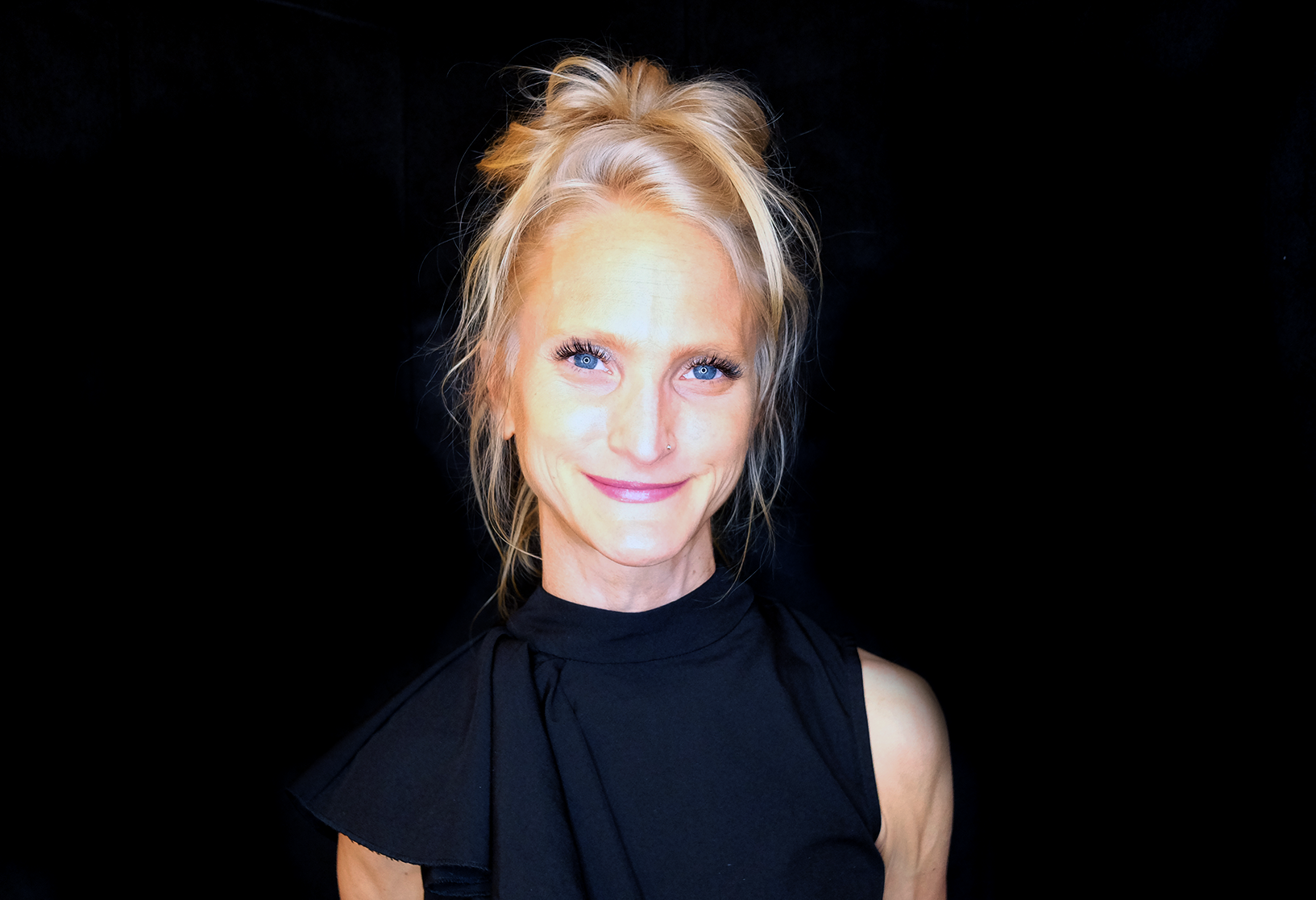Podcasting is a lot of work. How convenient would it be if you could just show up, talk into a microphone, and then magically all of your podcast marketing assets would appear? You’d have show notes and social posts, an email newsletter, and maybe even a complementary blog post.
When you use artificial intelligence (AI) tools as part of your podcasting workflow, that’s pretty close to what happens. There are a ton of ways AI can make your podcasting tasks faster and more efficient—but it has its drawbacks. It’s important to understand the legal implications of using AI in podcasting, especially as it relates to things such as intellectual property, fact checking, and content creation.
In this article, you’ll learn what intellectual property is, how it relates to podcasting, and how to protect both your intellectual property and that of other people as a podcaster.
What is intellectual property, and how does it relate to podcasting?
“Intellectual property, in its simplest form, is what people create. It is something that comes from the mind and is owned by that person and protected by law,” says Sarah Waldbuesser, attorney and owner of Destination Legal in an interview.
There are a lot of ways the law protects intellectual property, but for podcasters, it’s most important to understand the difference between copyright and trademark. Those are two of the four areas of intellectual property law.
“Copyright protects content you create—so, written content like blogs, courses, as well as verbal [content], like a podcast,” Sarah says. “Copyright law is automatic and states that nobody else can take and use your copyright without your permission.
“Registering your copyright with the government allows you to sue for copyright infringement should someone steal it. Because podcasts are somebody’s voice, it’s more difficult to take them and pass them off—unlike a course or written content—so typically these don’t need to be actually registered.”
While the content we create for our shows may not get registered, there is one way podcasters may want to take a more serious approach to protecting their assets: getting a trademark for the name of their podcast.
According to Sarah, “Registered trademarks are another form of intellectual property protection and allow a business or person to own their brand and/or name of a product or service.
“A podcast is considered a product, so trademarks allow people to own the name of their podcast. This means that once it’s registered, nobody else can use that same name as a podcast—it’s very powerful!”

Do you own the intellectual property generated by AI?
Now that we understand what intellectual property law is and how it relates to podcasting, let’s factor artificial intelligence into the conversation.
Let’s say you use a tool like ChatGPT to help you name your podcast. You worked hard to provide detailed information and context about the show, and then continued to tweak your prompt until it generated something you were happy with.
Is that your intellectual property? Not quite.
Now, let’s consider other things AI tools may help you with, such as podcast scripts, cover art and other marketing images, or written content, like show notes and social media posts.
At the moment, if they’re purely generated by AI, they aren’t your intellectual property.
The U.S. Copyright Office has already ruled that AI generated images were not able to be copyrighted, and has since updated their guidance on works that contain material generated with the help of AI tools.
That guidance says, “When an AI technology determines the expressive elements of its output, the generated material is not the product of human authorship. As a result, that material is not protected by copyright and must be disclaimed in a registration application.”
This doesn’t mean that you’re giving away all of your intellectual property when you use AI tools. Artificial intelligence can be helpful for things like brainstorming and outlining. Just remember that it’s a tool and you’re the expert welding that tool. If you’d like to maintain the IP of the finished product, you’ll need to focus on editing the content that was generated and adding your own ideas to truly make the work your own.
I like to compare it to brainstorming sessions from an editorial team. Attendees will share input and ideas, but ultimately, the writer assigned to a story will be the person to take those tidbits and use them as inspiration — in the end, the writing is their own.
Sarah agrees that generative content needs to be edited. “AI can be really helpful in coming up with ideas for podcasts, helping create show notes and emails for promotion. But, as with any AI outputs, you will want to put your own spin on it.”
Read more: Can you copyright the content you make with generative AI?

How to protect your intellectual property
Whether or not you use AI to generate parts of your podcast materials, there are a few things you’ll want to do to protect yourself and your show from a legal standpoint.
Protect your IP with a trademark
Let’s start with something somewhat simple: trademarking your podcast’s name. Sarah explained above that having a registered trademark means that no one else can use the same name as yours for their podcast. And with all the effort that goes into brainstorming, creating, editing, and promoting your podcast, you definitely don’t want to compete with another show that has the same name as yours.
If you haven’t trademarked your show’s name yet, there’s a good reason to do it quickly — you don’t want someone else to trademark it first!
Sarah says, “If you don’t own your podcast name, be aware that at any time, somebody else could. And then they could send you a cease and desist, and you would have to rename your podcast and lose all the brand equity you had built.”
And nevermind just the brand equity. Think about the time it would take to go back and edit out every mention of your show name from your old episodes!
Consider what data you share with AI tools
You might think your little ol’ podcast has nothing to hide, but that doesn’t mean you need to share everything, either.
It’s important to take a moment to consider whether the intellectual property you do put into AI tools is something you’d want to make public. For example, you may have shared personal information with a guest during an interview and later uploaded that recording into an AI tool. Or, in giving context to a tool while composing a prompt, you share your framework or other ideas you wouldn’t necessarily want your competitors to access.
The problem is: Once it’s shared, it’s no longer personal or protected.
“There really isn’t a way to protect the data you are putting into AI tools,” says Sarah. “Once you put something into a general AI tool, it’s like publicly posting it on the internet. There is no privacy expectation within a tool like ChatGPT, and once ChatGPT has it in its arsenal, it may spit it back out to someone else.“
How to make sure you’re not infringing on someone else’s IP
There’s something else to consider when using AI tools for your podcast. Where are they sourcing their information that they generate for you?
Now, not only do you have to worry about other people infringing on your intellectual property, but you also have to worry about accidentally infringing on other people’s intellectual property if you use AI tools.
Since AI models learn from the data points that they can access, they’re potentially sharing information with you that’s already copyrighted by someone else.
In fact, there are already multiple complaints filed claiming that OpenAI’s machine learning dataset is from previously published books that were used without consent from the authors or compensation for their work. This means that AI tools gleaned information from other people’s intellectual property and are now using it to answer your questions.
This is why it is so vital to source and fact check all the information an AI tool shares with you.
Sarah says, “If you’re doing any research, such as collecting facts or studies, you’ll want to double check everything and find another source as AI will grab things from anywhere on the web and won’t necessarily know if something is accurate or not.”
And this goes for both long and short content—even something that’s only a few words long!
For example, let’s return to the scenario where you use AI to help name a podcast. Even if you’ve specifically instructed the AI to give you names that don’t exist, you’ll want to double check them. Once you’ve narrowed down your list of potential names, make sure to then go out and do an internet search, a social media search, and a trademark search to make sure someone else isn’t already using that name.
A mentor of mine was recently experimenting to see whether ChatGPT would be helpful in naming a new business. After receiving a long list of options—some of which were pretty good— she researched them only to find that all of the names were already taken.
Knowing how to use AI only helps you enjoy it more
It’s important to know how to protect your intellectual property when using AI and make sure you’re not infringing on someone else’s IP. But that doesn’t mean you shouldn’t use artificial intelligence to help with your podcast.
AI tools help make your podcast production tasks and workflows more efficient, and they can kickstart your creativity in ways that no other tool can. Think of what Descript did for podcast editing: People who previously avoided editing their shows because they were afraid of the tech learning curve could now just edit the transcript’s text to perfect their podcast episodes. AI can make daunting tasks much faster and more intuitive than they’ve ever been before.
Knowing how to protect your podcast-related intellectual property — and ensure you’re not infringing on someone else’s — gives you the freedom to embrace AI and make the most of its strengths. In turn, it will make your podcast that much better.

































